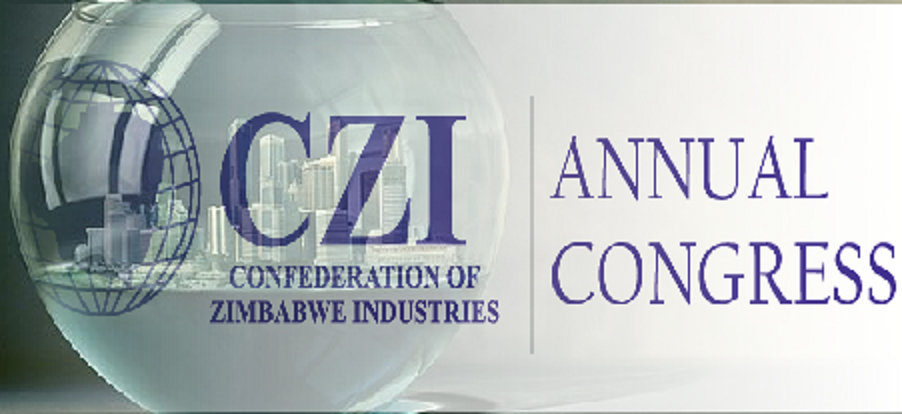THE Confederation of Zimbabwe Industries (CZI) yesterday urged the central bank to stop excessive money printing through the real time gross settlement (RTGS), saying this was fuelling inflation and destabilising the economy.
The RTGS platform, an electronic funds transfer system, has churned out billions of dollars created to pay civil servants' salaries and meet government obligations.
They are over and above a tranche of Treasury bills that have also been used to settle local debts and raise cash for government.
RTGS cash is said to account for an estimated $2 billion in the banking sector, and had a 71,87 percent chunk of the total value of transactions processed through the national payments system in the week ended September 1, 2017, according to Reserve Bank of Zimbabwe (RBZ) statistics.
Jimmy Psillos, chairperson of the economics and banking committee at CZI, said besides curbing money printing through the RTGS platform, the RBZ and government should restrict importation of luxuries, some of which include automobiles bought for Cabinet ministers, top civil servants, judges and parastatal executives.
He said government should cultivate confidence in the economy and the banking sector to enable Zimbabweans to deposit cash reportedly circulating in the informal economy.
Up to US$6 billion is reportedly circulating outside banks.
"We have a large pool of RTGS liquidity, $2 billion in RTGS," Psillos said in a presentation to a CZI-organised meeting to discuss recent turbulence in the economy.
"What can we do with this RTGS liquidity? What instruments can we invest in so that we can guarantee the market that RTGS liquidity is frozen at some level and it gives people confidence? We can control RTGS liquidity. Why are people worried? There is a lot of uncertainty and the reason is inflation (created by the RTGS balances)." said Psillos.
He added: "In recent years, inflation has mounted, so people are worried. We know what price controls do, we had a downward spiral. So there is uncertainty about the future - the government revenue, the government deficit. This is what has frightened people."
The country has been crippled by a shortage of foreign currency, which has resulted in a backlog in the payment of foreign commitments.
The creation of money through RTGS and Treasury bills issued by the Ministry of Finance has resulted in massive money supply growth, forcing investors to shun bank balances and seeking refuge in stocks or hard currency to avoid erosion of value.
This has triggered a bull run on the ZSE, which continued to touch record highs week-after-week.
RBZ governor, John Mangudya, urged executives at the breakfast meeting to debate underlying factors behind price hikes in the past week. He said while foreign currency was still only a trickle compared to the needs of industries and domestic consumers, the bulk of the US$4 billion earned in the past year from exports had been spent on less important things.
Mangudya said the country was failing to generate enough foreign currency, hence the rise in RTGS transactions.
"The stock of money in the economy is our challenge. The $390 million for maize purchase is not backed by forex. Farmers want cash from banks but banks are receiving RTGS. You did not put US dollars, you deposited RTGS. Let's sweat the RTGS system to create production. We have very few financial friends to give us money," he said.
"Zimbabwe is an isolated country; we all know that we are on the sanctions list. We are not on AGOA. Our exports to the US are charged 22 percent duty for entering that market. Other African countries are charged zero percent. In addition to the 22 percent, we have high costs, so how can we compete with other countries?" he said.
AGOA is the African Growth and Opportunity Act, a United States trade Act put in place in 2000 to enhance market access to the US for qualifying sub-Saharan African countries.
Zimbabwe National Chamber of Commerce chief executive officer, Christopher Mugaga, who attended the breakfast meeting, said it would be impossible to limit money creation through the RTGS because government was moving most of its payments through the system.
- fingaz
 Concern over Masvingo black market
Concern over Masvingo black market  Kenya declares three days of mourning for Mugabe
Kenya declares three days of mourning for Mugabe  UK's Boris Johnson quits over Brexit stretegy
UK's Boris Johnson quits over Brexit stretegy  SecZim licences VFEX
SecZim licences VFEX  Zimbabwe abandons debt relief initiative
Zimbabwe abandons debt relief initiative  European Investment Bank warms up to Zimbabwe
European Investment Bank warms up to Zimbabwe  Young Investment Professional (YIP) Graduate Programme 2019
Young Investment Professional (YIP) Graduate Programme 2019 











 Young Investment Professional (YIP) Graduate Programme 2019
Young Investment Professional (YIP) Graduate Programme 2019
Editor's Pick